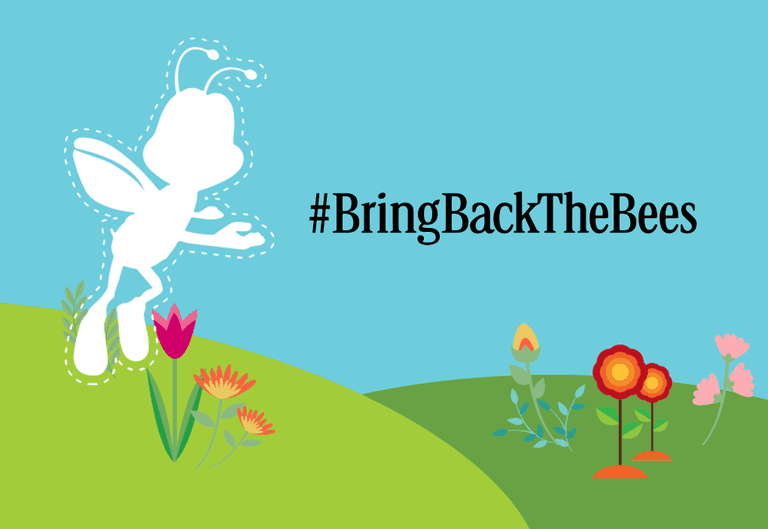
Earlier this month, General Mills launched a campaign with its Cheerios brand to give away wildflower seeds to anyone who requested them. The goal, according to the breakfast foods giant, was to disperse 1.5 billion seeds with the hope that 200 million flowers would bloom in consumers’ backyards. Company representatives even gave away seed packets on the streets of Chicago last week, and again yesterday, to promote this campaign.
The goal is to help boost bee populations, which have rapidly declined in recent years.
It all sounded like a pretty benign effort. The most likely outcome is that many consumers who received the packets would leave them in a drawer and forget about them, or toss them in their yard on the chance they might grow.
Then, a fuss started on the web. Some bloggers claimed Cheerios fans risked the spread of invasive species, a charge that echoed across social media. The sentiment even found itself repeated by Fortune.
General Mills has been constantly responding and repeating itself in kind, including in this emailed statement to TriplePundit:
“The flower varieties within the Bee Friendlier Mix were selected for their flowers which produce nectar and pollen that are attractive to bees and other pollinators. The mixture contains annuals, biennials, and perennials that produce flowers throughout the entire growing season (early, mid, and late) in a wide range of colors. The seed varieties in the mix are not considered invasive.”
But the outcry continued and morphed. On the brand’s Facebook page, for example, consumers lobbed a bevy of accusations, from the company’s use of glyphosate (Monsanto’s Roundup) in order to cultivate the oats that end up in Cheerios.
Other critics went further, pointing to a study that found Cheerios to be the food product with the highest levels of glyphosate in laboratory tests. The links between glyphosate and the death of bees have sparked plenty of scientific debate. One study suggests that the pesticide has negligible or zero links to the decline of bee populations. Research published in another biology journal, however, speculated that glyphosate could impair associative learning and behavior in honeybee colonies.
As for its impact on human health, the science is also open to interpretation. The European Union does not consider exposure to trace amounts of glyphosate as a carcinogen. Other scientists, however, expressed concern about the pesticide’s long-term effects after the World Health Organization (WHO) in 2015 determined glyphosate is “probably carcinogenic to humans.” The WHO backtracked on that statement a year later, based on what it said was the review of 1,000 studies, but it also concluded that health risks vary by the levels of exposure to the pesticide, which only adds to the confusion.
Of course, there is also the lack of evidence that GMOs, such as so-called RoundUp-ready crops that are engineered to resist glyphosate, have contributed any harm on human health (or contributed to deaths). But the social media firestorm continues around the debate.
In this case, the worst accusation flying around the Internet could be that the seeds Cheerios and General Mills shipped out were genetically-modified. The vendor is actually a seed company based in Canada’s Prince Edward Island. It has been been in business for almost 80 years – and no, Veseys Seeds are not GMO.
[embed]https://twitter.com/VirginiaInCal/status/843847840623337472[/embed]
Even under the best circumstances, a consumer engagement initiative such as this one by Cheerios is just one tool in the kit needed to revive bee populations. Planting these seeds in one’s front or backyard at the very minimum is not going to hurt; but simply tossing them in a natural environment such as in a state or national park is where the risk of an invasive species spread lies. Avoiding plants treated with neonicotinoids, which has been linked to the decline in bee populations, is also a critical tactic in addition to the planting of more flowers a home garden.
If the road to hell is paved with good intentions, General Mills risked finding itself in the fast lane. But despite suffering some bruises along the way, the pace at which the company found itself giving away seeds (its website was apparently overwhelmed, as some consumers complained that it was not working) shows that at the very least, General Mills and Cheerios helped raise awareness about this problem – resulting in success for the company overall.
Image credit: Cheerios/Facebook

Leon Kaye has written for 3p since 2010 and become executive editor in 2018. His previous work includes writing for the Guardian as well as other online and print publications. In addition, he's worked in sales executive roles within technology and financial research companies, as well as for a public relations firm, for which he consulted with one of the globe’s leading sustainability initiatives. Currently living in Central California, he’s traveled to 70-plus countries and has lived and worked in South Korea, the United Arab Emirates and Uruguay.
Leon’s an alum of Fresno State, the University of Maryland, Baltimore County and the University of Southern California's Marshall Business School. He enjoys traveling abroad as well as exploring California’s Central Coast and the Sierra Nevadas.














